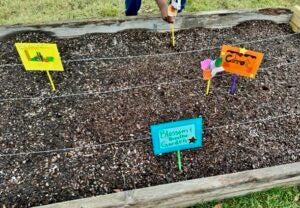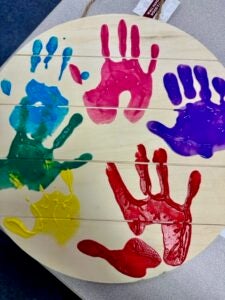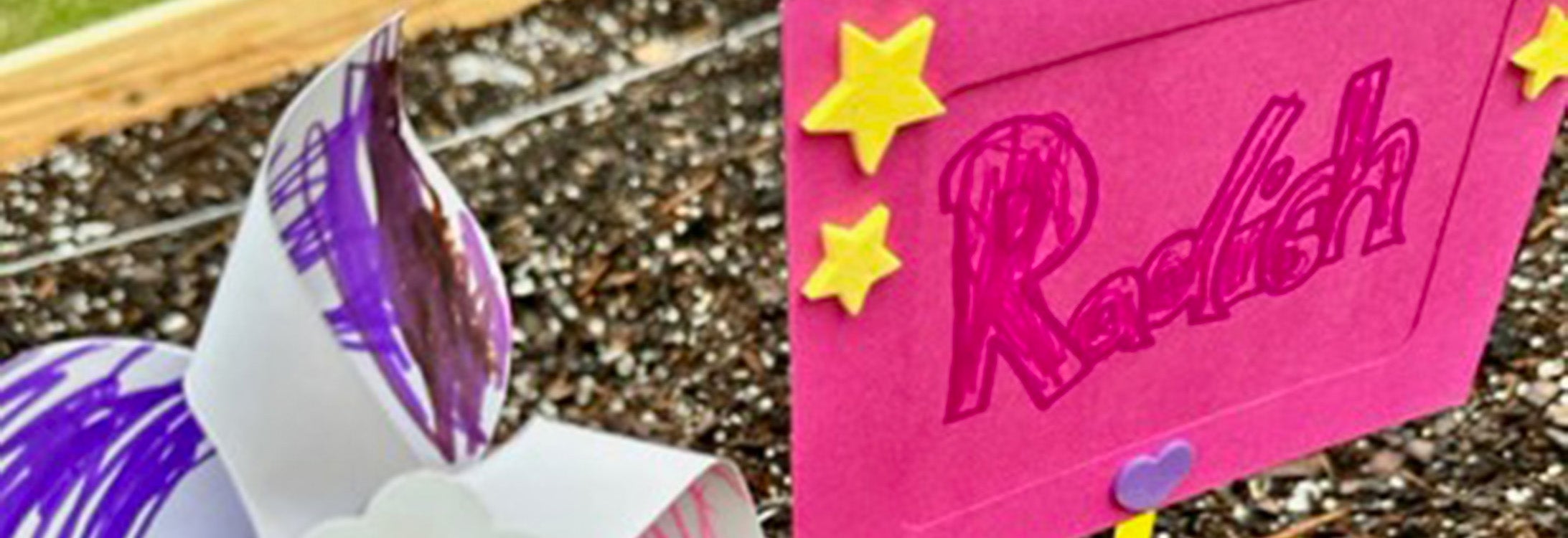Student spotlight: Community tactile garden
A recent highlight in the School of Social Work has been the work of students Sarah Harrell, Kassidy Crosby, Jonathan Pfeifer and Mercury Carver in a unique community tactile garden project to positively benefit children. Their adviser for this project was Dr. Kelley Reinsmith-Jones, MSW director and associate professor.
The following provides more insight about the project from the ECU student perspective, provided by Harrell:

The tactile garden can prompt a sense of calm and help reduce stress and anxiety.
Getting Ready is a day treatment program designed for children who have defiant disorders, ADHD or PTSD, to engage in positive peer interaction and develop age-appropriate social skills and coping strategies through consistent interventions and positive peer interaction.
In our program, we utilize a range of alternative therapies designed to teach children emotional regulation and equip them with various coping strategies they can use when they feel overwhelmed by their environment.
By employing horticultural therapy methods, we created a tactile therapy garden. Within this safe space, students explore sensory experiences like touching, smelling and exploring different textures, which can improve their fine motor skills. The tactile garden promotes an environment of curiosity, encouraging children to connect with nature, learn about vegetables and develop an appreciation for the outdoors. Through direct contact with the soil, planting the seeds and watering the garden, they receive sensory stimulation that aids in their emotional regulation. This prompts a sense of calm and helps reduce stress and anxiety.
As part of the intervention process, students created their own vegetable signs to indicate their responsibilities. This created a valuable sense of responsibility and investment in the garden. They decorated the garden by creating pinwheels and painted the edges of the garden box to make the garden more colorful. During the intervention, students were asked to use their hands to dig in the dirt and plant their seeds. Many of the students stated they felt proud or a sense of accomplishment, as they were unable to create such spaces in their own homes.
At the end of the session, students appeared calmer and excited to continue to plant in the garden.
Many of these students rely heavily on free lunches from the school and from the day treatment program, which creates few opportunities for these students to receive fresh produce. Most of our students receive free lunches through our program, but these meals consist of processed food. Having a community garden serves as both a means to an intervention and a source of fresh produce that can provide better nutrition to students.
